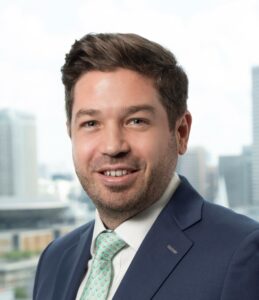
We have all made new year resolutions that didn’t last very long, and these days they often seem like just a bit of fun because we know that come the end of Jan, most will be forgotten or broken. I think I have only ever kept to one that I made about 10 years ago (ask me, I might tell you what it was).
One key reason for failure is the action around the tasks, either they are too ambitious, too onerous, too hard, or even worse, are made without any reasonable specific measure and targets.
Why do we make resolutions at the start of a New Year? I think it has something to do with the feeling of a ‘clean slate’, a new year, a new start etc. Where otherwise we end up just carrying over from the previous year, and the year before that…which might leave us feeling lacklustre about the new year.
I love the ‘fiscal year’ element of the calendar year and I like to analyse my financial planning at this time. For many people, it is a good time to plan their year financially, or indeed to start getting their financial planning and financial affairs in good order. So instead of, ‘I will run 1,000km this year’ (My failed resolution from 2022), it is potentially going to be far more worthwhile to take stock of your financial situation and get a personal plan set for 2023 and beyond. This is often easy to say but not always easy (because it’s not perceived as fun) to do. I guarantee it is cathartic though.
Here are my tips on what to do to put your 2023 financial planning and fiscal resolutions in place:
The net worth statement
- This is the key annual metric to benchmark your progress. Open an excel spreadsheet, keep it simple, list all your assets; cash, property, pensions, investments etc
- Then list your liabilities; credit cards, mortgages, personal loans etc
- Then deduct liabilities from assets and then you have your ‘net worth’
- How does this figure make you feel?
Assess your monthly cashflow and budget
- Next, go one step further and put this in another tab on your spreadsheet
- This is an activity that most of us avoid, and the idea fills us with dread. However, we often kid ourselves and “think” we know our monthly financial position, but how many of us can actually say that we budget properly
- You can budget as a total, overall, and if you want (I suggest you do) additionally you can budget some assets/liabilities that are joined, like property, individually too
- Total all your incomes.
- Total all your FIXED expenses – rent, bills, subscriptions, schooling, transport, groceries, fixed savings.
- Total all your VARIABLE expenses – Entertainment, holidays, shopping, discretionary spends.
- The next part might happen naturally, you inspect your numbers a little:
- What surplus do you have left? Does your bank account reflect that every month?
- If you have surplus – great! What are you then doing with it? Making it work harder or does it stay in cash or even worse, leak to other ‘spending’?
- If you don’t have surplus, are you saving/investing every month? If not, then you need to work out where you can make some cuts.
Protection
Are you appropriately insured? What would happen if you were no longer around, or suffered a serious illness? Most people are under-insured. Take time to really assess the worst case. Re-evaluate every year.
Housekeeping
Do you have a will? Everyone needs a will. It is easier than you think. Don’t put it off for another year. If you have one, is it up to date?
The year ahead
- Forecast your Income, bonuses, shares vesting
- Plan and budget costs for holidays throughout the year
- Plan your travel and make sure you avoid accidental tax residencies
Finally, arrange an appointment with a licensed financial adviser. Ask friends for a recommendation, meet more than one and be open, honest and ask lots of questions. Make a plan for your longer-term goals, financial independence, university costs for children, lifestyle property, weddings etc.
Happy New Year. All the best financial wishes for 2023!
 If you would like to learn more about how to put your 2023 financial resolutions into place, please contact David on david.reynolds@sjpp.asia or +65 9101 4814 to arrange a consultation.
If you would like to learn more about how to put your 2023 financial resolutions into place, please contact David on david.reynolds@sjpp.asia or +65 9101 4814 to arrange a consultation.
The value of an investment with St. James’s Place will be directly linked to the performance of the funds selected and may fall as well as rise. You may get back less than you invested.
Advice relating to a will involves the referral to a service that is separate and distinct to those offered by St. James’s Place.
The ‘St. James’s Place Partnership’ and the titles ‘Partner’ and ‘Partner Practice’ are marketing terms used to describe St. James’s Place representatives. Members of the St. James’s Place Partnership in Singapore represent St. James’s Place (Singapore) Private Limited, which is part of the St. James’s Place Wealth Management Group, and it is regulated by the Monetary Authority of Singapore and is a member of the Investment Management Association of Singapore and Association of Financial Advisers (Singapore). Company Registration No. 200406398R. Capital Markets Services Licence No. CMS100851.
St. James’s Place Wealth Management Group Ltd Registered Office: St. James’s Place House, 1 Tetbury Road, Cirencester, Gloucestershire, GL7 1FP, United Kingdom. Registered in England Number 02627518.








